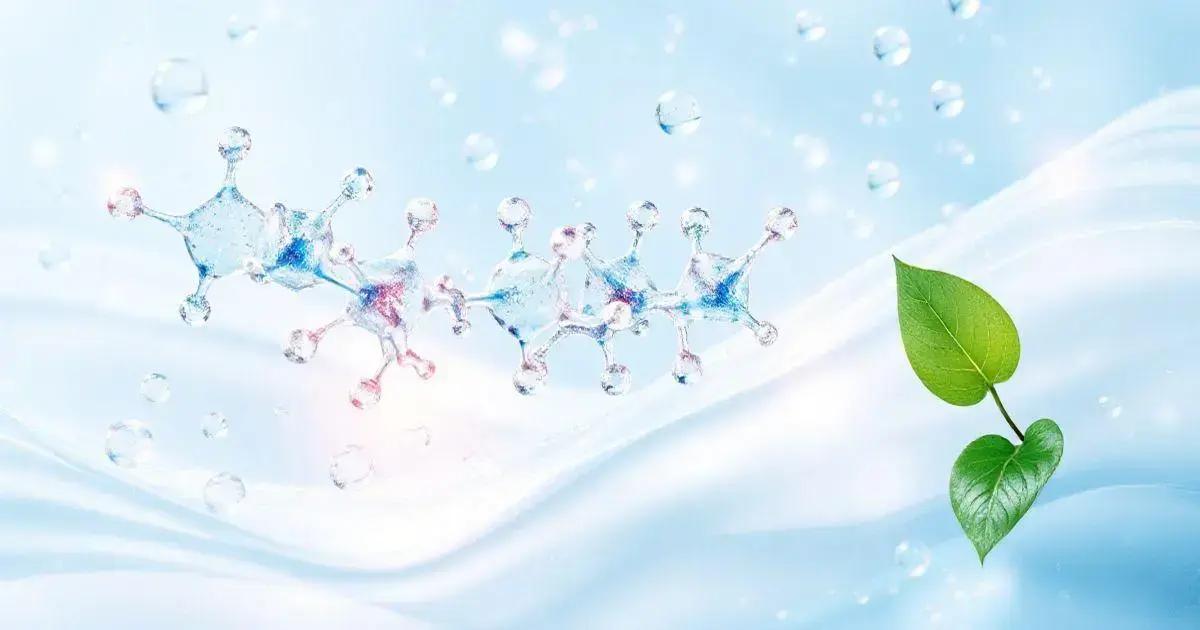Hyaluronic acid is an essential skincare ingredient celebrated for its ability to retain moisture and boost hydration, leading to improved skin elasticity, reduced fine lines, and soothing effects for sensitive skin. To effectively use it, apply it on damp skin, layer with moisturizers, and use it daily. Understanding its differences from other ingredients and debunking myths can aid in making informed skincare choices, while expert advice highlights the significance of hydration and product quality for optimal results.
Hyaluronic acid is more than just a buzzword in the beauty industry; it’s a powerful ingredient that offers numerous benefits for skin health. This naturally occurring substance is essential for maintaining moisture and elasticity in our skin. In this article, we’ll uncover 10 surprising facts about hyaluronic acid that highlight its importance in skincare and beyond.
What is Hyaluronic Acid?
Hyaluronic acid is a naturally occurring substance found in the human body, primarily in connective tissues, skin, and cartilage. It plays a vital role in retaining moisture, providing cushioning, and maintaining elasticity.
With its remarkable capacity to hold up to 1,000 times its weight in water, hyaluronic acid is a key player in keeping our skin hydrated and plump.
As we age, our body’s production of hyaluronic acid decreases, which can lead to dryness, wrinkles, and a loss of firmness in the skin. This is why hyaluronic acid has become a popular ingredient in many skincare products, as it helps replenish moisture and improve overall skin texture.
Hyaluronic acid is suitable for all skin types, including sensitive skin, due to its lightweight nature and ability to absorb quickly without leaving a greasy residue.
It’s often referred to as a “miracle” ingredient because of its versatility and effectiveness in enhancing skin health.

The Science Behind Hyaluronic Acid
The science behind hyaluronic acid is fascinating and highlights its essential role in maintaining skin health.
At its core, hyaluronic acid is a polysaccharide, which means it’s a long chain of sugar molecules. This unique structure allows it to attract and retain moisture, making it an incredibly effective humectant.
Hyaluronic acid is naturally produced by the body and is found in various tissues, including the skin, where it contributes to hydration, elasticity, and overall skin integrity.
Its ability to hold vast amounts of water helps to keep the skin plump and youthful.
When applied topically, hyaluronic acid penetrates the skin layers and forms a moisture-retaining barrier.
This barrier not only hydrates the skin but also helps protect it from environmental aggressors, such as pollution and UV rays.
Additionally, hyaluronic acid can stimulate collagen production, which is critical for maintaining skin structure and firmness.
Research has shown that hyaluronic acid can improve skin hydration levels and reduce the appearance of fine lines and wrinkles.
Studies suggest that regular use of products containing hyaluronic acid can lead to a noticeable improvement in skin texture and elasticity, making it a staple in modern skincare formulations.
Top Benefits for Skin
The top benefits of hyaluronic acid for skin are numerous, making it a vital ingredient in many skincare products. Here are some of the most significant advantages:
- Intense Hydration: Hyaluronic acid is renowned for its ability to draw moisture from the environment and retain it within the skin, leading to deeply hydrated and plump skin.
- Reduction of Fine Lines and Wrinkles: By providing optimal moisture, hyaluronic acid helps to fill in fine lines and wrinkles, resulting in a smoother, more youthful complexion.
- Improved Skin Elasticity: Regular use of hyaluronic acid can enhance skin elasticity, making it firmer and more resilient, which is especially beneficial as we age.
- Soothing Irritation: Hyaluronic acid has calming properties that can help reduce redness and irritation, making it suitable for sensitive skin types.
- Enhanced Skin Barrier Function: By maintaining hydration levels, hyaluronic acid strengthens the skin’s natural barrier, protecting it from environmental stressors and preventing moisture loss.
- Compatibility with Other Ingredients: Hyaluronic acid works well with a variety of other skincare ingredients, enhancing their effectiveness without causing irritation.
These benefits make hyaluronic acid a powerhouse ingredient that can dramatically improve the health and appearance of your skin, making it an essential part of any skincare routine.

How to Incorporate Hyaluronic Acid
Incorporating hyaluronic acid into your skincare routine is straightforward and can significantly boost your skin’s hydration levels. Here are some effective ways to include it in your regimen:
- Start with a Clean Face: Begin your routine by cleansing your face to remove any dirt, oil, or makeup. This prepares your skin to better absorb products.
- Apply on Damp Skin: For optimal results, apply hyaluronic acid when your skin is slightly damp. This helps the ingredient attract moisture from the environment into your skin.
- Choose the Right Product: Look for serums or lightweight gels that contain hyaluronic acid as a key ingredient. These formulations typically have a higher concentration and absorb quickly.
- Layer with Other Products: After applying hyaluronic acid, layer it with a moisturizer to lock in hydration. This combination helps to create a barrier that prevents moisture loss.
- Use Twice Daily: For the best results, use hyaluronic acid both in the morning and at night. Consistent application will help maintain hydration and improve skin texture over time.
- Consider Seasonal Changes: In drier months, you might want to increase the amount of hyaluronic acid you use or switch to a thicker moisturizer to enhance hydration.
By following these simple steps, you can effectively integrate hyaluronic acid into your skincare routine and enjoy its numerous benefits for your skin.
Myths and Misconceptions
Despite its popularity, there are several myths and misconceptions surrounding hyaluronic acid that can lead to confusion. Here are some common myths debunked:
- Myth 1: Hyaluronic Acid is Only for Dry Skin: While hyaluronic acid is excellent for hydrating dry skin, it is suitable for all skin types, including oily and combination skin. It helps balance moisture without clogging pores.
- Myth 2: Hyaluronic Acid is the Same as Hyaluronic Acid Injections: Although both forms of hyaluronic acid provide hydration, topical products and injectable fillers serve different purposes. Topical hyaluronic acid hydrates the skin, while injections add volume and structure.
- Myth 3: Hyaluronic Acid Can Only Be Used in Serums: Hyaluronic acid is available in various formulations, including creams, gels, and even masks. You can incorporate it into your routine in multiple ways.
- Myth 4: More is Better: Using excessive amounts of hyaluronic acid can lead to sticky skin or a feeling of heaviness. A little goes a long way; just a few drops are usually sufficient.
- Myth 5: Hyaluronic Acid is Synthetic and Harmful: Hyaluronic acid is naturally occurring in the body and is not harmful. Many skincare products with hyaluronic acid are formulated to be safe and effective.
By debunking these myths, you can make informed decisions about incorporating hyaluronic acid into your skincare routine and harness its full potential.

Hyaluronic Acid in Supplements
Hyaluronic acid isn’t just a star ingredient in skincare; it’s also gaining popularity in the supplement world. Here’s what you need to know about hyaluronic acid in supplements:
- Joint Health: Many people take hyaluronic acid supplements to support joint health. It helps maintain the synovial fluid that lubricates joints, potentially reducing pain and improving mobility, particularly in individuals with osteoarthritis.
- Skin Hydration: Oral supplements containing hyaluronic acid can also contribute to skin hydration from the inside out. Studies have shown that these supplements can improve skin elasticity and reduce dryness, complementing topical applications.
- Dosage Matters: When considering hyaluronic acid supplements, it’s essential to follow the recommended dosage. Common dosages range from 100 to 200 mg per day, though it’s always best to consult with a healthcare professional before starting any new supplement.
- Natural vs. Synthetic: Most hyaluronic acid supplements are derived from bacterial fermentation or synthesized in labs. Both forms are generally considered safe, but natural sources may be preferred by some consumers.
- Synergistic Effects: Many hyaluronic acid supplements are combined with other beneficial ingredients, such as collagen, vitamins, and antioxidants, to enhance their overall effectiveness for skin and joint health.
Incorporating hyaluronic acid supplements into your wellness routine can complement your skincare efforts and support joint function, making it a versatile addition to your health regimen.
Choosing the Right Products
Choosing the right products containing hyaluronic acid is crucial for maximizing its benefits for your skin. Here are some tips to help you select the best options:
- Check Ingredient Concentration: Look for products that list hyaluronic acid near the top of the ingredient list. This indicates a higher concentration, ensuring you receive effective hydration.
- Consider Formulation: Opt for lightweight serums or gels that absorb quickly into the skin. These formulations often deliver a concentrated dose of hyaluronic acid without feeling heavy or greasy.
- Look for Additional Benefits: Many products combine hyaluronic acid with other beneficial ingredients, such as vitamins (like vitamin C or E), peptides, or antioxidants. These combinations can enhance the overall efficacy of the product.
- Skin Type Compatibility: Consider your skin type when choosing products. For oily skin, lightweight serums or gels may be preferable, while those with dry skin might benefit from creams or thicker formulations that provide additional moisture.
- Read Reviews: Before purchasing, check reviews and ratings from other users. This can provide valuable insights into how well the product works for others with similar skin concerns.
- Patch Test New Products: If you have sensitive skin, always perform a patch test with new products. Apply a small amount to a discreet area and wait 24 hours to check for any adverse reactions.
By keeping these factors in mind, you can confidently choose the right hyaluronic acid products that will enhance your skincare routine and help you achieve healthier, more hydrated skin.

Hyaluronic Acid vs. Other Ingredients
Understanding how hyaluronic acid compares to other skincare ingredients can help you make informed choices for your routine. Here’s a breakdown of how it stacks up against some popular ingredients:
- Glycerin: Like hyaluronic acid, glycerin is a powerful humectant that attracts moisture to the skin. However, hyaluronic acid can hold more water, making it a more potent hydrating agent. Both ingredients can be used together for enhanced hydration.
- Retinol: Retinol is known for its anti-aging properties, promoting cell turnover and reducing wrinkles. While retinol can sometimes cause dryness, hyaluronic acid can help counteract this effect by providing necessary hydration, making them a great duo in a skincare routine.
- Peptides: Peptides are short chains of amino acids that help stimulate collagen production and improve skin elasticity. While hyaluronic acid hydrates and plumps the skin, peptides work to strengthen and repair it. Using both can lead to a more youthful appearance.
- Vitamin C: Known for its brightening and antioxidant properties, vitamin C can help even out skin tone and protect against environmental damage. Hyaluronic acid complements vitamin C by ensuring the skin remains hydrated, enhancing its overall effect.
- Niacinamide: This ingredient is celebrated for its ability to improve skin barrier function, reduce inflammation, and minimize pores. When combined with hyaluronic acid, the hydrating properties of both can result in a smoother, more even skin texture.
In summary, while hyaluronic acid is a standout ingredient for hydration, it works exceptionally well with other ingredients, providing a comprehensive approach to skincare. By combining these ingredients, you can effectively address multiple skin concerns and achieve healthier skin.
Expert Recommendations
When it comes to incorporating hyaluronic acid into your skincare routine, experts have some valuable recommendations to ensure you get the most out of this powerful ingredient:
- Use It Daily: Experts recommend using hyaluronic acid twice a day, both in the morning and at night, to maintain optimal hydration levels and enhance skin texture.
- Layer with Other Products: For maximum benefit, apply hyaluronic acid before heavier creams or oils. This layering strategy allows the hyaluronic acid to penetrate deeply while the other products seal in moisture.
- Stay Hydrated: While hyaluronic acid helps to draw moisture into the skin, drinking plenty of water is equally important. Staying hydrated internally supports skin health and enhances the effects of topical products.
- Combine with Sun Protection: Always follow your morning application of hyaluronic acid with a broad-spectrum sunscreen. This protects your skin from UV damage and prevents moisture loss throughout the day.
- Choose Quality Products: Look for reputable brands that use high-quality hyaluronic acid in their formulations. Products that include additional beneficial ingredients like antioxidants or peptides can provide even better results.
- Consult a Dermatologist: If you have specific skin concerns or conditions, consider consulting a dermatologist. They can provide personalized recommendations and help you create an effective skincare routine that includes hyaluronic acid.
By following these expert recommendations, you can effectively incorporate hyaluronic acid into your skincare regimen and enjoy its benefits for hydration, elasticity, and overall skin health.

Conclusion
Conclusion
In conclusion, hyaluronic acid is an essential ingredient in the world of skincare, known for its powerful hydration properties and ability to improve skin texture and elasticity.
By understanding its benefits, how to incorporate it into your routine, and the myths surrounding it, you can make informed decisions to enhance your skincare regimen.
Whether used in serums, creams, or supplements, hyaluronic acid can significantly contribute to healthier, more radiant skin.
Remember to choose high-quality products, layer effectively, and stay consistent in your application.
With these practices, you can fully harness the power of hyaluronic acid for a rejuvenated complexion.
Conclusion
In conclusion, hyaluronic acid is a powerhouse ingredient that plays a crucial role in maintaining skin hydration and overall health.
Its ability to attract and retain moisture makes it an essential component in many skincare products.
By incorporating hyaluronic acid into your daily routine, you can enjoy numerous benefits, including improved skin elasticity, reduced fine lines, and a more youthful appearance.
Remember to choose products wisely, follow expert recommendations, and combine it with other effective ingredients for the best results.
With consistent use, hyaluronic acid can help you achieve the hydrated, glowing skin you desire.
FAQ – Frequently Asked Questions about Hyaluronic Acid
What is hyaluronic acid used for?
Hyaluronic acid is primarily used for hydration, helping to retain moisture in the skin and improve its overall appearance.
Is hyaluronic acid suitable for all skin types?
Yes, hyaluronic acid is suitable for all skin types, including oily and sensitive skin, as it hydrates without causing irritation.
Can I take hyaluronic acid as a supplement?
Yes, hyaluronic acid is available in supplement form and is often taken to support joint health and skin hydration.
How often should I use hyaluronic acid products?
For best results, use hyaluronic acid products twice daily, in both your morning and evening skincare routines.
Can I use hyaluronic acid with other skincare ingredients?
Absolutely! Hyaluronic acid works well with various other ingredients, including vitamin C, retinol, and peptides, enhancing their effectiveness.
Are there any side effects of using hyaluronic acid?
Hyaluronic acid is generally safe for most people, but it’s always best to perform a patch test when trying a new product, especially if you have sensitive skin.


